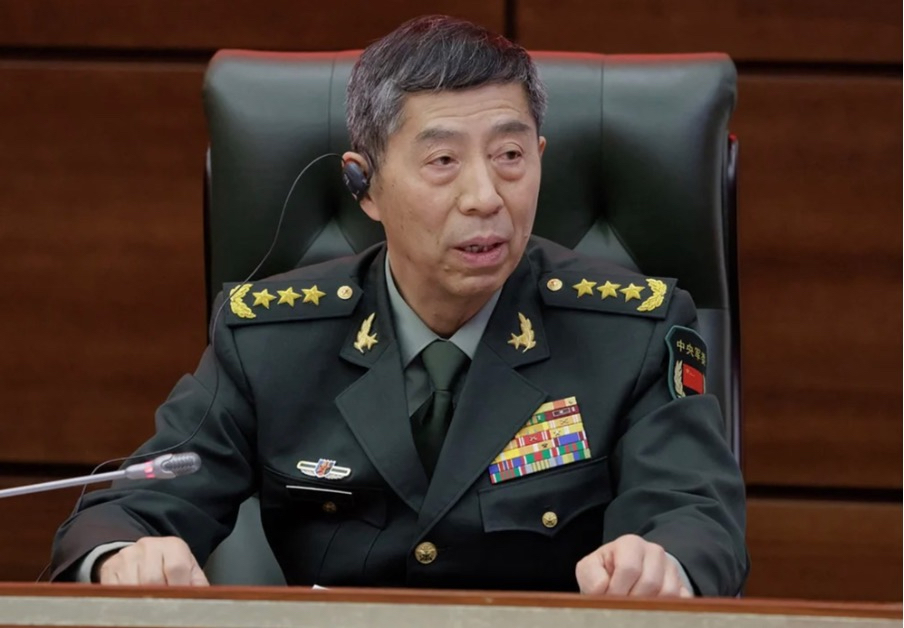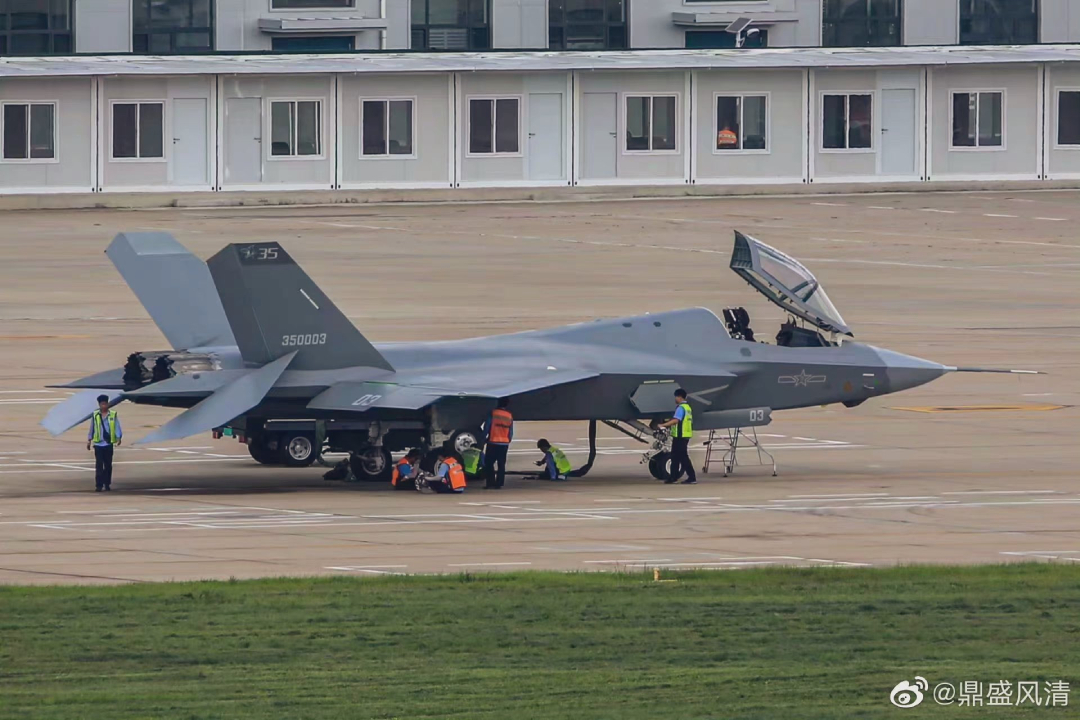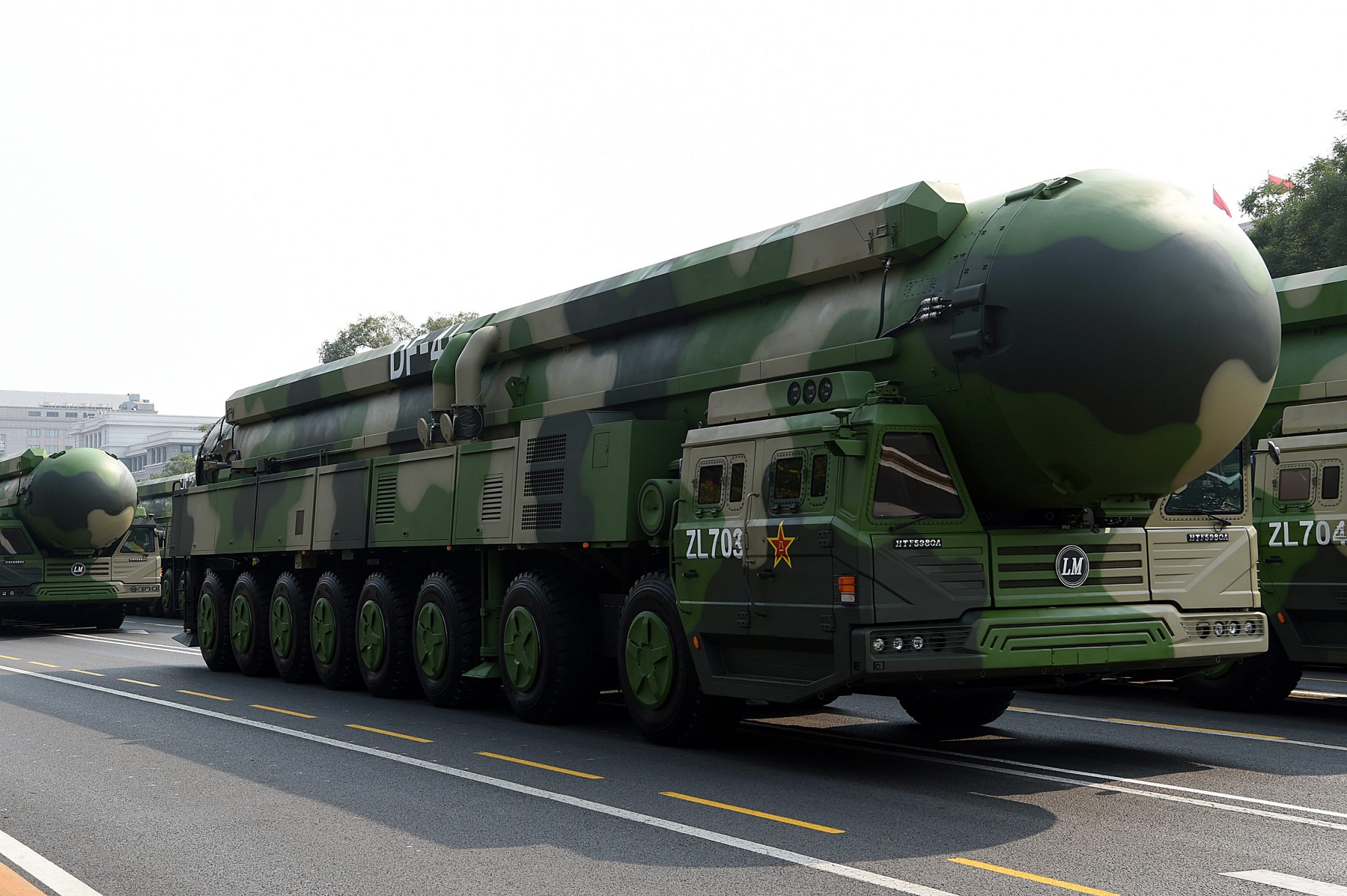
President Xi made a promise to rid China of corrupt politicians and military leaders. Defence acquisitions have been examined in detail with irregularities found. He has been partially successful, but the road is long.
In the Summer of 2023, People’s Republic of China (PRC) ministers began disappearing. It began on 25 June when Foreign Minister Qin Gang made his last known public appearance. A month later he was replaced by his predecessor, Wang Yi, who had been promoted to take over the Chinese Communist Party’s (CCP) foreign policy portfolio.
Then on 29 August, General Li Shangfu, the PRC Defence Minister, was seen for the last time when he addressed a China-Africa security forum in Beijing. He had been scheduled to attend another international event in early September, but failed to show with officials in Beijing explaining his absence as the consequence of a ‘health condition.’
Before long the rumour mill produced uncredited reports on both individuals. Qin, it was said, had been arrested over activities from when he was the PRC Ambassador to the United States from July 2021 to January 2023.
According to China political observers, unidentified senior Chinese officials were told that an internal CCP investigation discovered Qin had carried on an extramarital affair throughout most of the time he had served as the PRC’s chief envoy to the United States. At least two sources told US media outlets that affair had resulted in birth of a child in the US.
“This in itself would have been grounds for Qin’s dismissal and eventually some rather serious punishment, as the affair itself constitutes a violation of party discipline,” said a long-time PRC political analyst who spoke to AMR. Since that time there has been no confirmation of Qin’s status, with the publication Politico Europe even reporting two sources claiming that in July 2023 Qin had either committed suicide or had died while under arrest.
Other reports were that the CCP investigation into whether Qin’s conduct could have compromised PRC national security. One US-based Chinese analyst told AMR there “were indications that Qin could have been passing sensitive information to the US Government, either through his extramarital partner or directly to intelligence community contacts.” If so, this would explain his abrupt dismissal after the shortest time in office (207 days) of any Foreign Minister in the nation’s history.
When Defence Minister Li Shangfu did not appear at a conference in which he was due to participate in September, it was then revealed he had not been seen for more than two weeks. Shortly thereafter there were reports he had been placed under investigation by CCP authorities.

Acquisition Irregularities
One of the causes for Li’s equally-sudden departure from public view was an investigation that coincided with his 2017-2022 tenure as the head of the People’s Liberation Army (PLA) Equipment Development Department (EDD). It is the top procurement organisation within the PLA and is the highest-priority function within the all-powerful CCP’s Central Military Commission (CMC).
As is always the case with high-profile detentions and investigations into senior PRC government officials, Li had a ‘supporting cast’ of personnel that were rounded up along with him. Reportedly, eight other senior officials from the EDD are under scrutiny.
Li’s power, seniority and position within the CMC make his detention unprecedented. The last PLA official who was a CMC member brought under investigation was Xu Caihou, who was made the subject of corruption inquiries in March 2014. This, however, was after he had already retired from the PLA and no longer held any official position.
According to multiple sources, the investigation into Li related to procurements of the PLA’s most important and modern weapon systems. These included the very high-dollar Almaz-Antei S-400 air defence system – the longest range and most advanced of Russia’s SAM models – and the Sukhoi Su-35 fighter aircraft.
In the process of the Su-35 purchase significant changes were made in Russian policy that set guidelines for any major weapons export sale. These related to reducing the minimum number of aircraft the PLA would be required to purchase from 48 to 24, the quantity of spare engines included in the contract (a significantly larger than normal number) and providing data to Beijing so that Chinese industry could perform some of their own weapons and on-board systems integration.
Integration services for a combat aircraft are typically only performed by the OEM and it is generally a very lucrative activity. Russian fighter manufacturers are not alone in this practice. By way of example, BAE Systems passed on the opportunity for an F-35 production line in the UK. This was based on their calculation that the follow-on activities of servicing the add-ons for the aircraft, upgrades, integration of weapons, etc. would be worth considerably more over the life of the programme than the profit from manufacturing the aircraft itself.

Speaking with one Russian colleague at one of the previous Air Show China expos in Zhuhai, he stated “there must have been some considerable payoffs – in both directions – for these long-standing positions to have been reversed or modified. The PLA is of course the most important customer historically for Russian industry. But this is an aircraft that the Chinese have been trying to buy for about two decades, so they – in theory – should be ready to accept almost any Russian demands rather than the other way around.”
Somehow, this colleague observed, the Chinese side had been able to “convince” Moscow to significantly shift from their traditional practices. This fact is what had the investigating team in Beijing were looking into, the procurement irregularities during the time that Li was running the EDD.
In addition to suspicions that payoffs might have been made in the process of these acquisitions, there have been other more recent questions as to whether the billions that these two Russian-made weapons systems cost was money well spent. The Su-35 and S-400, have both performed poorly in Ukraine – a fact not lost on senior PLA circles. Li and his eight co-defendants are reportedly charged not only with having made illegal payments, but also that he authorised payments for equipment from the Russians that has turned out to be ineffective against US weaponry.

In all, the investigation into Li’s tenure at the EDD encompassed eight different categories of illegalities. These included the rigging of the procurement process so that specific companies were awarded contracts in return for kickbacks. Chinese government documents described the process as creating “small circles to control the bid evaluation process.”
However, by far the most alarming from the CCP leadership’s perspective were allegations of leaking information about the PRC’s latest missile programmes – presumably to the security services of foreign countries.
Rocket Men
At the beginning of August just how widespread the twin tracks of malfeasance and selling classified information were became impossible for Beijing to keep under wraps. As the proverbial walls were closing in on the Defence Minister, it was revealed that the Commander of the Strategic Rocket Forces (PLASRF), General Li Yuchao, and his deputy General Liu Guangbin had also disappeared from public view some months before.
Li Yuchao had been accused of embezzling large sums of the SRF budget during a time that considerable funding was earmarked for increasing the infrastructure of the force’s missile inventory – and for the building of more launch sites. Expansion of the PRC’s nuclear arsenal has become a major priority and its size has more than doubled in the last three years under CCP General Secretary Xi Jinping.
In the Pentagon’s October 2023 China Military Power Report, the PRC was estimated to have produced 500 operational nuclear warheads by May of that same year. That compares with the 2020 edition of the document that placed the warhead inventory “in the low 200s.”
As more information rose to the surface there were reports that Liu Guangbin had died in early July, and allegedly by suicide. These rumours were accompanied by the theory that Liu was also selling sensitive military information to the Americans. These were the leaks alluded to in the investigations of Li’s time at the EDD. Another report suggested the transfer of this data may have been handled by his son who was studying at university in the US at the time.
This, however, was only the beginning. According to an analyst at the Cercius Group, a Canadian geopolitical consulting firm, the CCP’s investigation of the PLASRF has resulted in the arrests of at least 70 people now suspected of various categories of wrongdoing. Uncovering additional cases of corruption is one reason for the growing of the numbers now detained. But is only one of the ills that plagues the rocket force.
What is adding to the intensity of this continuing and widening investigation are accusations that generals in the rocket force – as with others already behind bars – also leaked classified information on these missile systems to the US.
Then, in early January, details of a classified US intelligence assessment that were leaked to media outlets detailed examples of just how widespread corruption within the PLASRF is. These included reports of liquid-fuelled rockets filled with water instead of fuel. Other data in the report discussed fields of new missile silos in western China fitted with defective silo hatches that do not allow missiles to launch and achieve their required trajectory.
These details became known about the same time that another wave of arrests and demotions connected to these latest scandals were underway. This time it hit the senior ranks of the defence industry enterprises responsible for these missile programmes.
On 29 December 2023 the Chinese People’s Political Consultative Conference (CPPCC) revoked the seats on the body that had belonged to Liu Shiquan, chair of the weapons manufacturer China North Industries Group (NORINCO); Wu Yansheng, chair of China Aerospace Science and Technology Corporation; and Wang Changqing, deputy manager of the state-owned China Aerospace Science and Industry Corporation (CASIC).
In addition to these executives, nine other defence figures were removed, including five linked to the rocket force and at least two from the EDD. Earlier in November another PLASRF major-general was removed from Beijing’s municipal legislature. The rocket force has reportedly come under increasing scrutiny because of openly-published reports from the US intelligence community and details of classified documents leaked in the American media. They both demonstrate a level of knowledge about the force that “can only have come through multiple penetrations and security failures,” said one PLA-watcher who spoke to AMR.
Failure to Launch
When Xi Jinping came into power at the end of 2012, he took almost no time aiming at the PLA with his high-profile anti-corruption campaign. Of the 120 senior officials cashiered, arrested and/or imprisoned in this purge more than 12 were high-ranking military officers. Nationwide roughly 2.3 million government officials have been prosecuted.
Among those who were toppled were Zhou Yongkang, who had been a member of the Standing Committee of the Politburo and had held the security portfolio. (Zhou was not brought down due to his corrupt activities, but because he had colluded with the Chongqing Party Secretary Boa Xilai in 2012 to block Xi’s ascension to the General Secretary’s position.) Another former CMC Vice Chairman, Guo Boxiong, was also taken down in the same manner as his former colleague Xu Caihou.
Xi embarked on this largest ever organised anti-corruption effort in the history of the CCP to launch the country onto a new path. The goal was to strengthen party discipline, build the PLA into a modern, all-digital force, and provide its officers and enlisted ranks with an entire new generation of more capable weaponry.

That effort has clearly not achieved many of the goals it was designed to fulfil. After more than a decade in power, Xi rules over a system in which there may have been some successes in weeding out the worst corrupt practices within the PLA, but economic corruption and other equally negative practices have increased.
But the real failure may be that there is no one inside of the CCP hierarchy who appears to be providing Xi with accurate information and instead, said the PRC political analyst, “people around him are telling him what he wants to hear.”
It was not one of Xi’s own security officials, but Russian President Vladimir Putin who informed him of the disloyalty of his senior underlings. Putin visited Beijing in March 2023 at the time informed the Chinese leader that his Foreign Minister Qin Gang was – in addition to others – handing missile secrets over to the US. There appear to be very few politically reliable individuals within the senior ranks.
At an October 2023 at a forum at the Washington, DC Center for Strategic and International Studies (CSIS), specialists on the PLA stated despite all the corruption cases Xi is not giving up on his long-stated goal of returning the Republic of China (ROC) on Taiwan to Beijing’s control – by invasion if necessary.
Shen Ming Shih, a fellow at the ROC’s Institute for National Defence and Security Research, told those present the Chinese leadership likely doesn’t think its forces are ready to take on the United States in the event of an invasion into Taiwan. They realise “it will be a long war” if the United States is involved, he said. In his estimate it will likely take Beijing 10 to 15 years to reach the readiness state of American forces.
Will Xi be able to maintain power for another 10-15 years? And if so, can he continue to rule a nation whose military and national security apparatus is so full of individuals highly vulnerable to temptations of self-enrichment. It is not a promising set of conditions.
by Reuben F. Johnson












